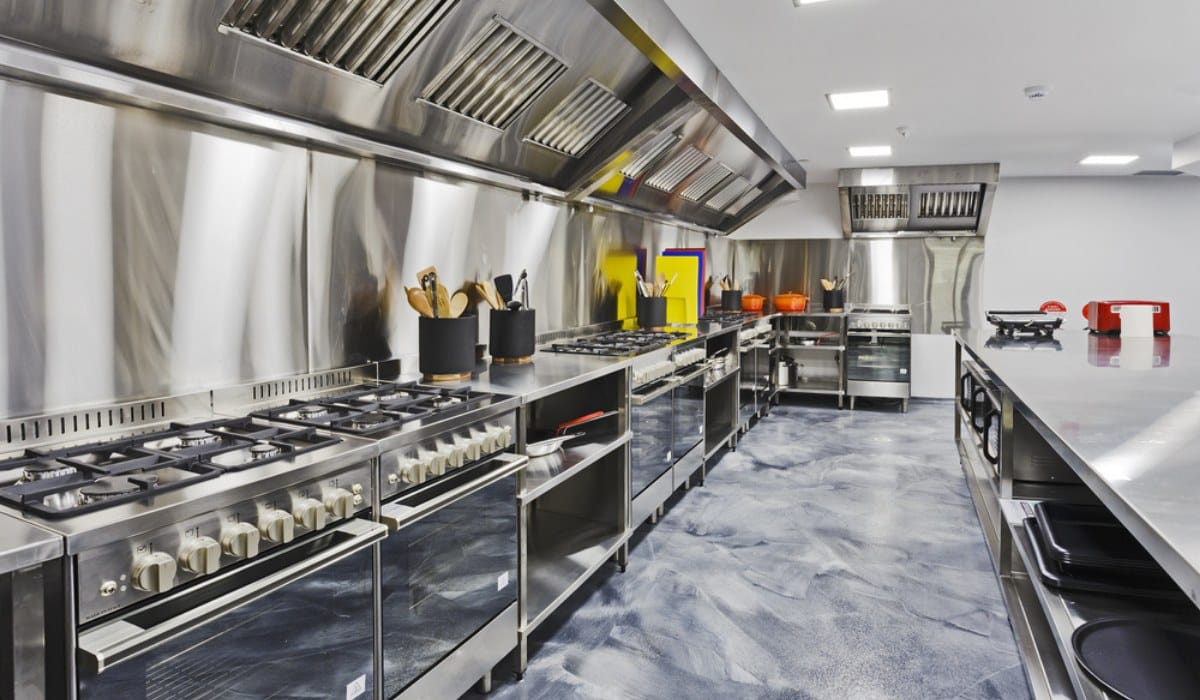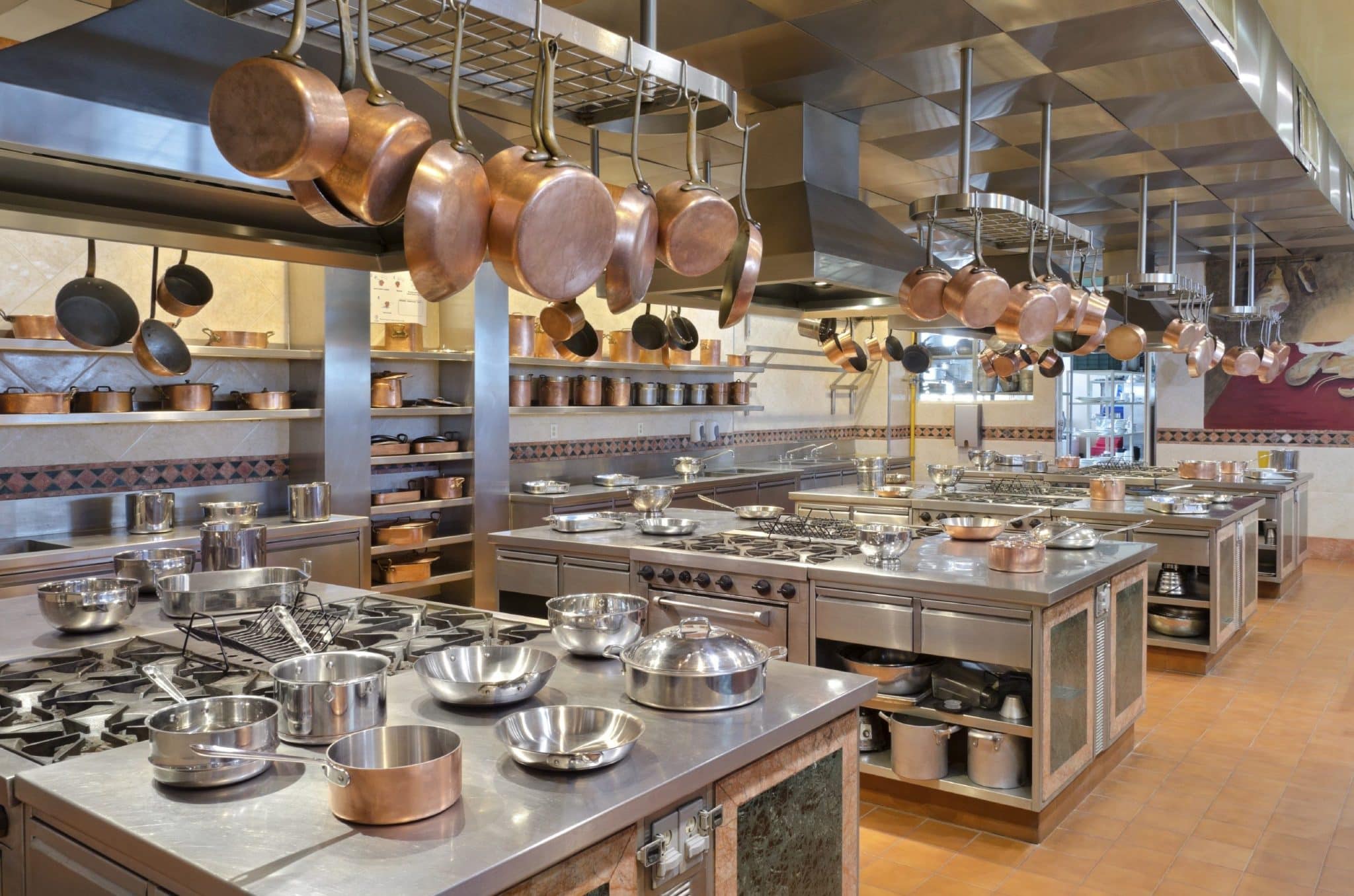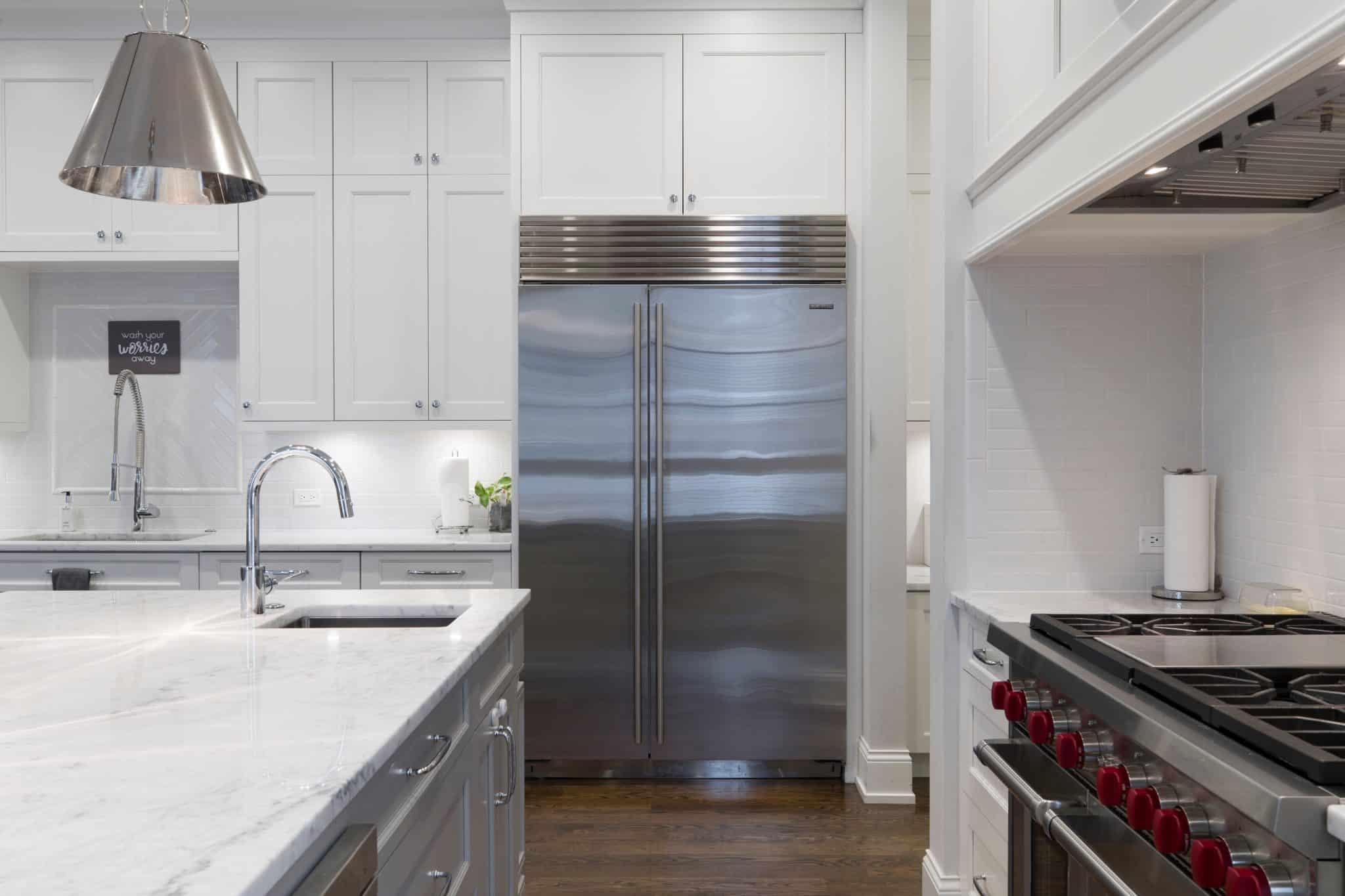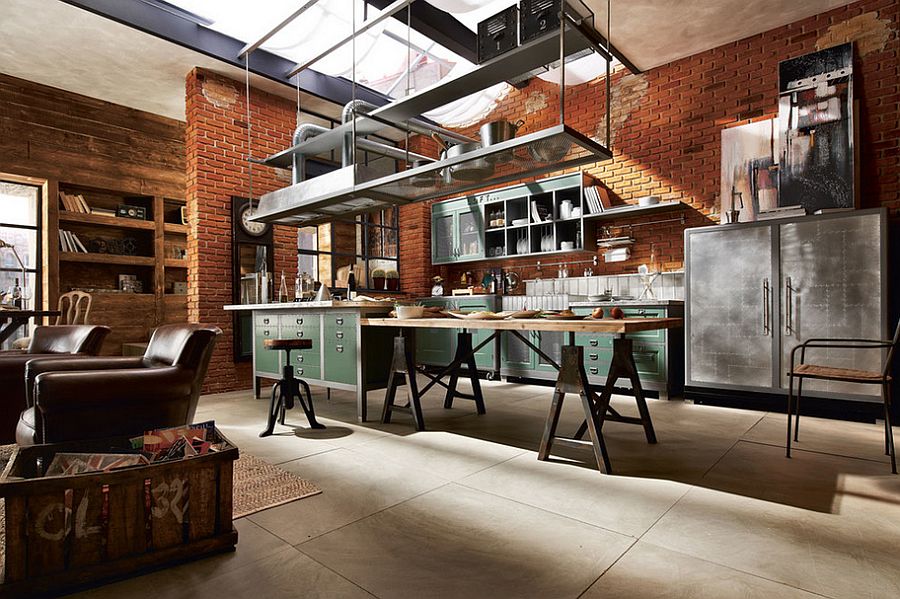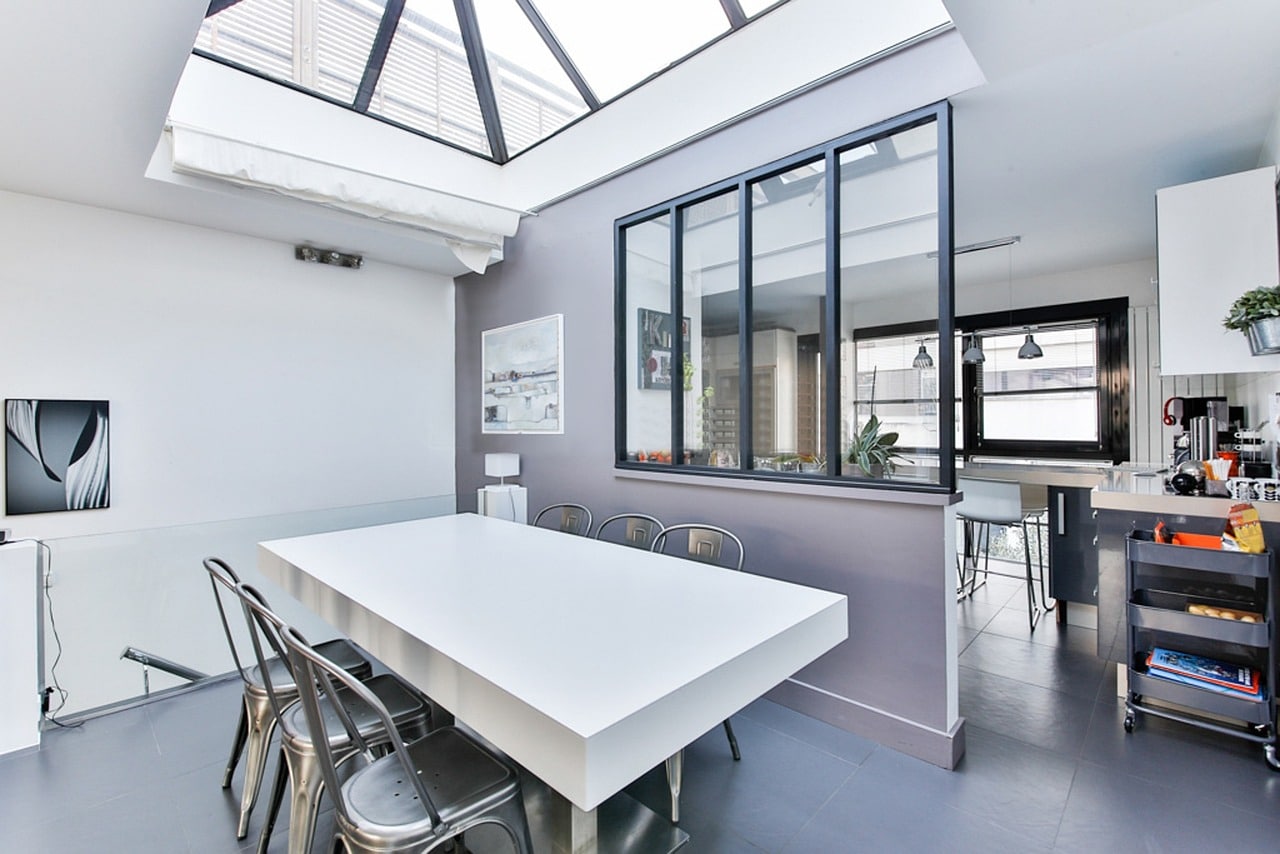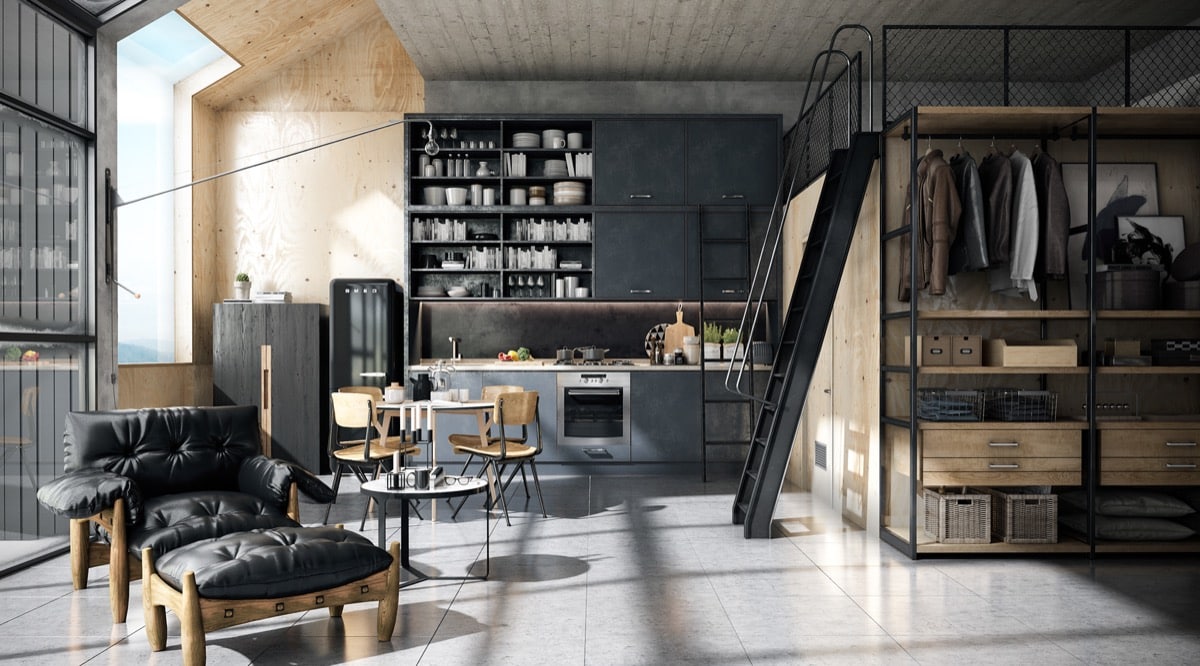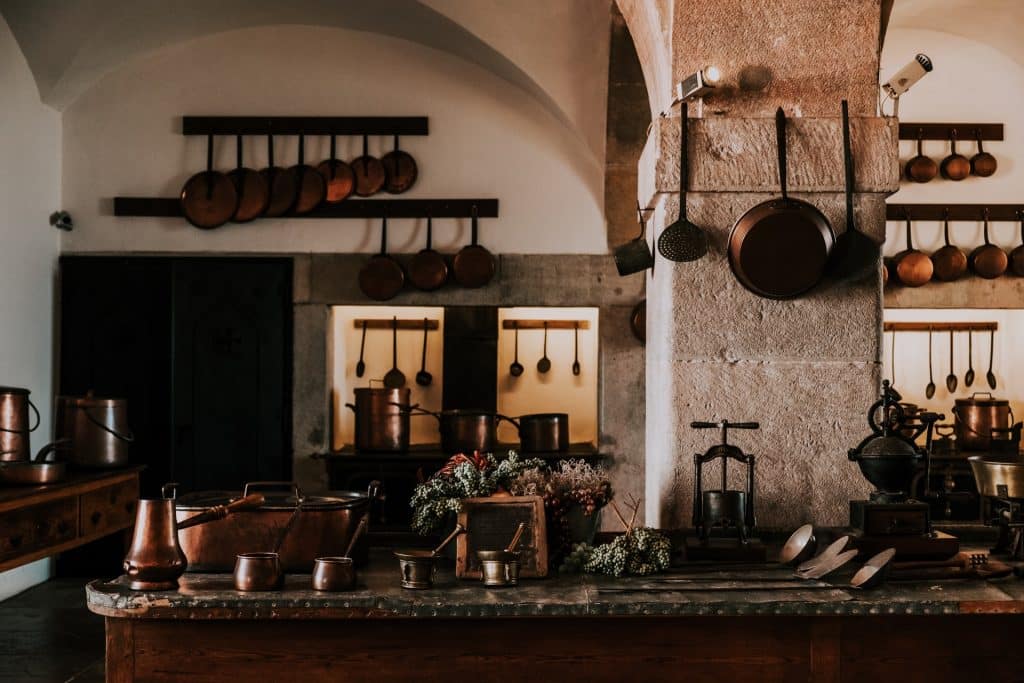What are the Key Materials Used in An Industrial Kitchen?
Industrial kitchens are known for their practicality, functionality, and durability. The materials used to design an industrial kitchen are crucial to its success. Stainless steel is the most commonly used material in industrial kitchens because of its strength, resistance to corrosion and heat, and easy maintenance. Concrete is another popular material that provides both aesthetic appeal and durability.
Using brick in an industrial adds warmth and texture to the space, while reclaimed wood is an eco-friendly option that brings a rustic charm to the layout.
Here, we will dive deeper into the critical materials used in industrial design, their benefits, and how they can help you create a functional yet stylish workspace.
Critical Materials in Industrially Designed Kitchen
1. The Role of Stainless Steel
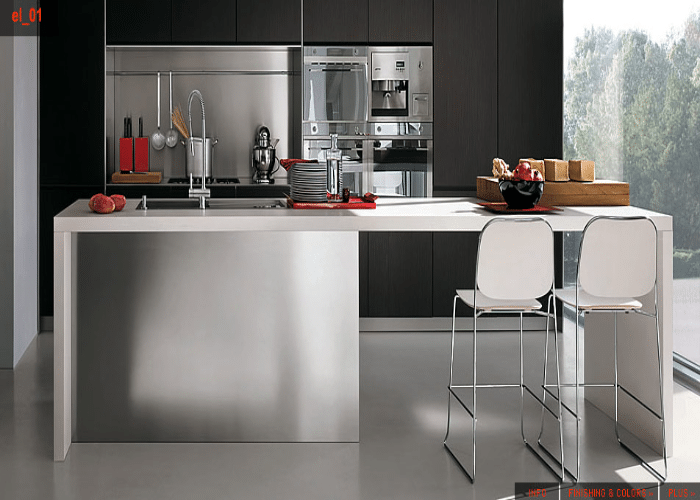
Stainless steel plays a vital role in an kitchen. It is the material of choice for countertops, appliances, and shelving due to its durability and resistance to corrosion. Not only does it withstand the demanding environment of a commercial kitchen, but it is also easy to clean and maintain, ensuring food safety and cleanliness. Additionally, stainless steel’s sleek and modern appearance adds to the overall aesthetic of the kitchen. It is also used for utensils, storage containers, and other small wares, making it an essential material in an kitchen.
2. Importance of Concrete in Kitchen Design
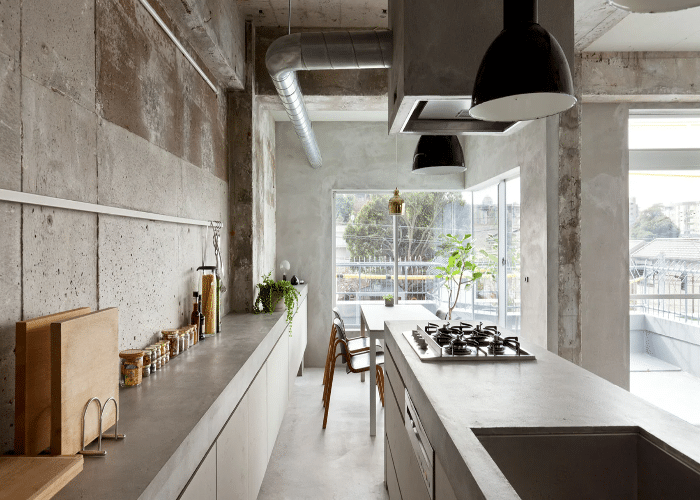
Concrete is vital in kitchen design due to its versatility and durability. It is commonly used for kitchen floors, providing a hard-wearing surface that can withstand heavy foot traffic and spills. Concrete countertops are also popular in industrial kitchens, offering durability and a unique style. The industrial look of concrete adds character and authenticity to the kitchen design. Additionally, concrete is easy to clean and maintain, making it well-suited for the demands of a commercial kitchen.
3. Brick and Its Uses in Industrial Kitchens
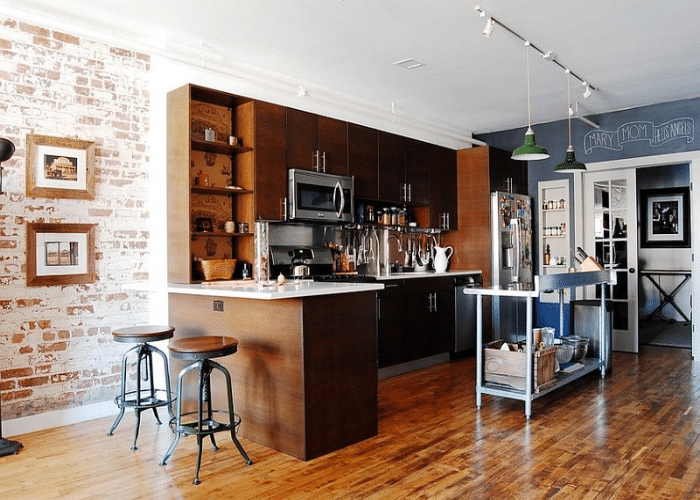
Brick, a common feature in industrial kitchens, adds an industrial feel and visual appeal. It can be used for walls, backsplashes, and even as an accent on kitchen islands. Highly durable brick can withstand high temperatures, making it suitable for grilling and cooking. Additionally, its easy-to-clean and maintain properties contribute to the cleanliness and functionality of the kitchen. Brick is a great way to incorporate the industrial style into the cuisine environment.
4. Reclaimed Wood
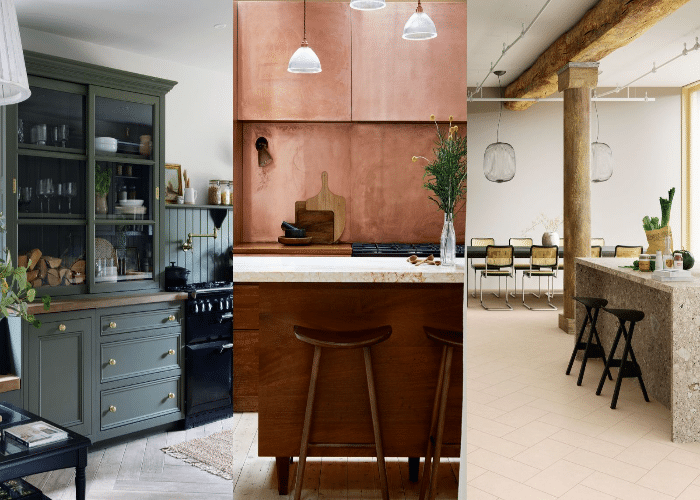
Reclaimed wood is famous for industrial kitchens due to its aesthetic appeal and sustainability. It adds warmth and character to the space, complementing the industrial elements. Sourced from old buildings or structures, reclaimed wood promotes recycling and reduces environmental impact. It can be used for countertops, shelving, or decorative accents, creating a unique and eco-friendly atmosphere. Incorporating reclaimed wood in an kitchen design is a great way to enhance the overall look and embrace sustainable practices.
Essential Equipment for Industrial Kitchens
Industrial kitchens rely on specialized equipment to meet the demands of high-volume production. To ensure food quality and safety, refrigeration and storage equipment are crucial. Efficient operations require food preparation and cooking equipment such as mixers, whisks, and freezers.
Proper food handling necessitates using utensils and small wares like tongs and spatulas. Safety measures, including fire extinguishers and goggles, are essential for a secure working environment.
Industrial kitchens benefit from these equipment essentials, enabling them to deliver fast and delicious cuisine.
1. Refrigeration and Storage Equipment
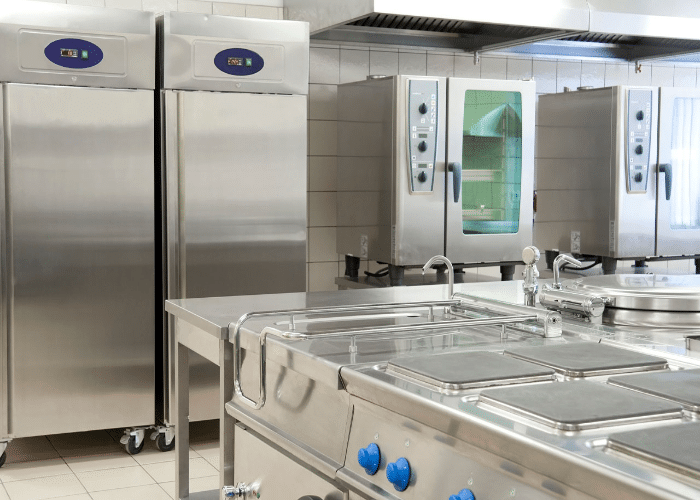
Refrigeration equipment is a crucial component of an kitchen, ensuring ingredients stay fresh and maintaining food safety. Commercial-grade freezers are essential for storing perishable items at the right temperature. To maximize space and efficiency, shelving and food storage containers are used. It is necessary for an kitchen to have proper refrigeration and storage equipment to avoid food waste and ensure smooth operations. Durable and high-quality refrigeration equipment is critical in maintaining an efficient kitchen.
2. Food Preparation and Cooking Equipment
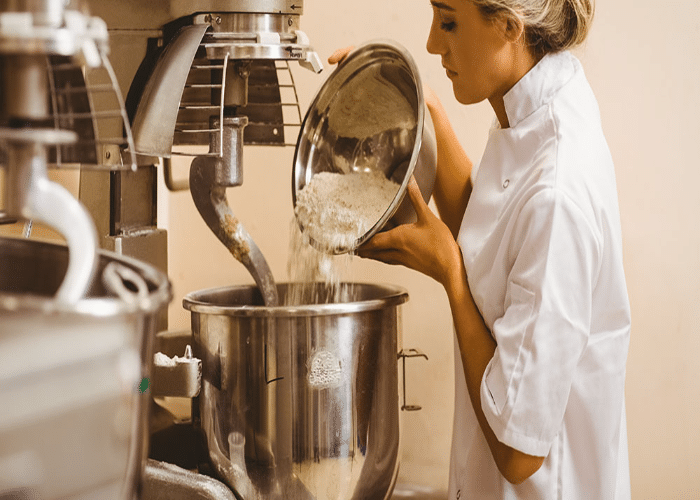
Food preparation equipment, such as mixers and blenders, is essential for efficient and consistent food production. Cooking equipment like ovens and fryers are necessary for preparing a wide range of dishes. Utensils and small wares, such as knives and measuring tools, are indispensable in the kitchen. The right equipment ensures precise cooking techniques and enhances the overall quality of the food. Industrial kitchens require durable, reliable food preparation and cooking equipment to meet high-volume demands.
Maximizing Functionality with Kitchen Layout
Efficient organization of countertops and shelving allows easy access to appliances and utensils, enhancing workflow in the kitchen. Utilizing durable stainless steel surfaces ensures longevity and makes cleaning a breeze. Ample storage containers and freezers facilitate efficient ingredient management, while strategic layout optimization promotes easy navigation. Placing refrigeration equipment in convenient spots enables quick access to ingredients. Maximizing functionality in an kitchen involves thoughtful planning and consideration of these critical elements.
1. Incorporating a Kitchen Island
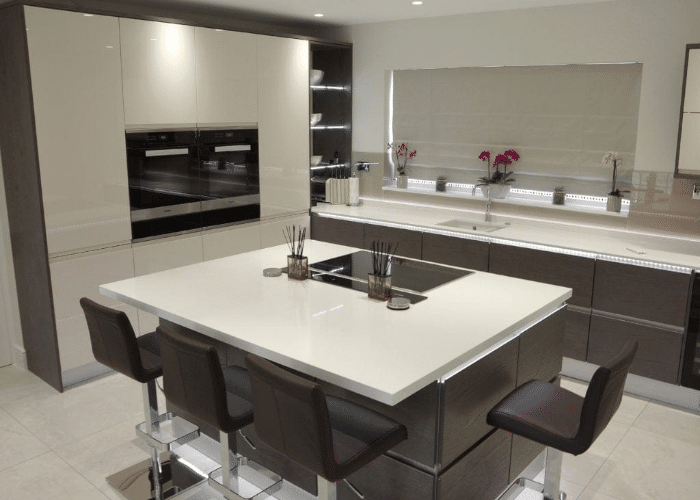
Incorporating a kitchen island into an industrial-style kitchen is a great way to enhance functionality and create a focal point. It provides additional countertop space for food preparation and serving and offers a casual dining area when combined with bar stools, encouraging social interaction. You can improve its functionality by installing a sink and dishwasher on the kitchen island. Additionally, choosing a kitchen island with built-in shelving and storage allows for easy organization of rags, food storage containers, and utensils.
2. Effective Utilization of Wall Space

To make the most of your industrial kitchen’s wall space, consider installing sturdy and adjustable shelving units to store small wares and utensils efficiently. Hanging pots, pans, and whisks on hooks ensures easy access and adds a decorative touch. Utilize wall-mounted storage containers to keep frequently used ingredients easily accessible, and install a pegboard to hang and organize various cooking tools and utensils. Adding a magnetic knife strip on the wall is a great way to optimize safe and convenient storage space.
Conclusion
Regarding industrial kitchens, essential materials are significant in achieving functionality and aesthetics. Stainless steel is a staple material in industrial kitchens due to its durability and ease of maintenance. Concrete adds a modern and industrial look while providing a sturdy surface for countertops and flooring. Brick brings a rustic charm and can be used for accent walls or backsplashes.
Lastly, reclaimed wood adds warmth and character and promotes sustainability. Incorporating these critical materials into your kitchen design can create a practical and visually appealing space. Don’t forget to enhance the overall look with industrial lighting fixtures, which add a touch of authenticity.

